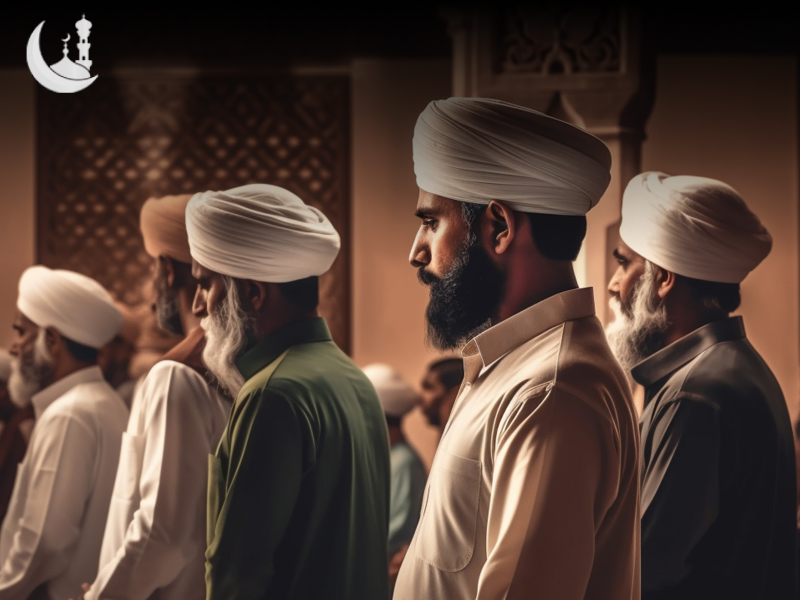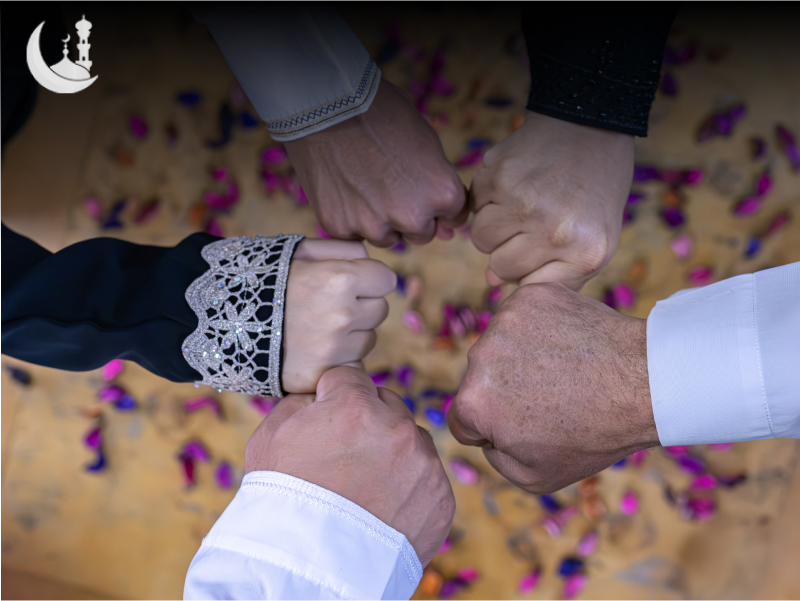While numerous stories revealed Abraham’s sacrifice resonated most with his followers, it was this culture that most especially run deep within the hearts of the Islamic people. It was the extent of faith that far surpassed the general plea for compliance and servitude to Allah because it was at the same time an act of obedience but also a lesson about selflessness, love, and the spirit of togetherness. He wanted those qualities as he was ready to do so because he was bid to sacrifice his son Ismail.
The Story of Father Abraham
The book starts with the Quran where Allah instructs Abraham to sacrifice his only son, Ismail. He did this so that he could be able to serve the will of Allah, and hence his faith and devotion unto him could be fulfilled. The narrative of the Quran’s childhood subsequently continues at Sura As-Saffat, a place where Allah addresses such command to his follower called Abraham who has all the people circled him.
It is the story contained in surah as-Saffat that provides clarity on the command given by Allah to Ebrahim; that he should find an animal on which his son was to be sacrificed. The saying goes without doubt that the emotional strain that Abraham carries about himself is at its highest, however, he states only once.
I cannot describe it as being one with him in such a state of pressure that borders on impossibility. Instead, he goes further to state the position of a person regarding Allah, that is the person ought to trust wholly in Allah.
Abraham’s sacrifice conveys the knowledge of the commandment to Isma’il, who, once again proving strength and faith, he fully accepts it. In this drama of the father and son, love and attachment to Allah are enacted. This is a time for sacrifice, and Allah has a ram replaced in the place of Isma’il, which denotes that submission does not equate to mere sacrificing but an absolute surrender at the very heart.
Sacrifice as a Symbol
The ultimate importance for a Muslim would be to prove willing to let go of something of the most precious value to himself like Abraham’s sacrifice. That stands to represent the very heart of the faith, acceptance, and trust in Allah, otherwise referred to as Tawakkul. That one is ready to lose his dearest belonging for God’s sake speaks forth the belief perspective that should be above everything else except the relationship between them and Allah. This lesson transcends ages as it teaches Muslims what is most important as they try to make things better with the Creator.
In addition, Qurbani also throws the idea of impermanence to every one of us. And so, now presents its function of giving expense of loss rather than simple donation that mostly comes across as Zakat. Eid al-Adha is one of the Islamic festivals, that humankind celebrates across the globe by slaughtering Qurbani, an activity of slaughter of any animal and further bifurcation of its flesh with families, friends, and the poor. Till now, due to similar reasons, groups have kept connecting socially, motivating them to do good karma, and always keeping in mind the goods that the gods have provided them with.
Spiritual and Social Significance
The consequences of Abraham’s sacrifice go way past the private dimension of faith; in fact, they end up being relatively very present and real as a social event. Eid al-Adha as a yearly phenomenon tends to create feelings of belonging and appreciation for people. This is how people associate and spend their Eid with family and friends enjoying the delicacies and sharing the food with other people and even volunteering their services for charity. It is because of this that the meat is shared out with the less privileged which is inbuilt in true believers, sympathy, and kindness towards their fellow beings.

The events of the story will always raise the spirits of the reader. When subjected to such moments, the trials and long suffering of Abraham are quite enough to provide sustenance for their spirits. Only when the quest for the approval of Allah is held true does the concept of testing one’s spirits remain within the lines of human life and that one can fortify over such adversaries with faith.
Reflection and Personal Growth
It is a story of Abraham’s sacrifice that begs to be thought over in the person’s (her own) and God’s palliative and indeed, the relationship between the two. This provocation poses a number of concerns to the Muslims, are they really willing to submit themselves to the will of God? Do they, for the sake of altruism, have the ability to renounce their egoistic tendencies? Evaluations of this nature are very crucial in the course of the development of one’s spirituality.
To the person looking for more information concerning counseling tips for spiritual life, Muslim counseling becomes very relevant. Examples such as how to cross-culturally counsel a Muslim client become crucial whereby one has to step foot in this area of discovery while maintaining their faith. In simple terms, as much as counseling is a preventive measure, it also provides the necessary moral prescriptions for proper understanding of religion because it deals with the patient teaching the person how to deal with situations of faith complexities and so has provided that individual some principles.
Role of Muslim Counseling
Much to your surprise, Muslim counseling can work effectively for most parts of personal and spiritual growth. It can contribute during Eid al-Adha mainly in the following ways.

1. Understanding Faith Systems
This is one of the entry points of counseling and in this regard how Islamic practices incorporating lessons learned from the selfless sacrifice of Abraham would be very effective in creating an understanding among people as they can rectify the utter misconception while the people can relate to the religion more practically.

2. Emotional Support
There could also be days when the believer loses hope, becomes confused, or questions some things. That is when counseling is relevant because it gives moral strength to the person and also helps turn the person’s thoughts in the opposite direction of his faith. Such stories like that of Abraham come in handy when the moments inspired are very tough.
3. Counsel in Personal Trials
An example of what the role of the counselor is would be taking the lessons of the sacrifice of Abraham and transferring it to common struggles, such as putting faith before material gifts or other outward displays of respect and kindness. At this point, professional counseling can help brighten up a path forward.
4. Building Community Ties
In a Muslim society, it encourages community spirit since, it makes the members of the society face to face with others who have a problem or experience that is akin to an issue, which in most cases, revolves around the Muslim: oneness.
5. Spiritual Development
Guiding counseling integrates teaching and learning processes with growth and implies that the teaching that has been provided may people need to act upon it. In Islam, it is an undertaking aimed at getting closer to God through knowledge pursuit.
Conclusion
In all his greatness and influence, the history given by the Quran of Abraham’s sacrifice and concerning it is the great history of stories quite old and deep, and everybody being a believer in Islam finds. Of some themes involved there are faith, trust, and making Allah the only friend above any worldly life. This narrative could be translated to become a life story since it enlightened much about the daily activities of an individual who believes and, therefore, became a transformed better individual in society.
The annual Qurbani ritual, conducted by Muslims on Eid al-Adha, brings to mind the concepts of giving, caring, and love every year. As it turns out, it’s a celebration of Abraham’s sacrifice as well as a communal time.
Thus, for all those who look forward to some form of aid in the further development of these teachings, Marrkazzul Irrshaad Wa Tawjeeh offers the best possible aid with Muslim counseling services. It will inspire the individuals to pursue their spiritual paths by way of personal counseling and treatment and imitate the selfless courage of Abraham who is always at the gate of absolute faith. This will also acquaint them with how to love Allah and what qualities make them connected with His righteous servants.
Read Also: 13 Qualities of Allah’s Righteous Servants
FAQs
Q1) What is the significance of Abraham’s sacrifice according to Islam?
Abraham’s sacrifice symbolizes total submission to Allah’s will and unwavering faith. It serves as a reminder of the importance of prioritizing one’s relationship with Allah and is commemorated during Eid al-Adha through the practice of Qurbani.
Q2) In what ways can Muslim counseling enable me to better understand religious traditions?
A safe space for one to explore the importance of the religious culture is created by Muslim counseling. It clarifies misconceptions and even enables a better understanding, thereby allowing individuals to develop meaningful relations with their faith and teachings.
Q3) Which services does Marrkazzul Irrshaad Wa Tawjeeh provide?
Marrkazzul Irrshaad Wa Tawjeeh Provides Muslim counseling to help one along his or her spiritual way. They give resources of guidance and emotive support where one can be helped to try and understand and grow in Islamic teachings.





